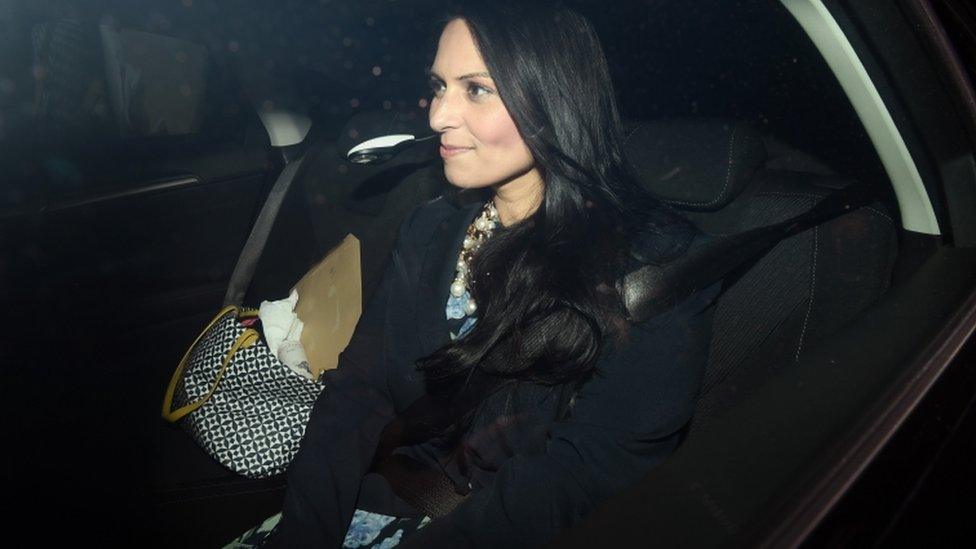Priti Patel's exit will pose problems for May
- Published

It was precisely a week ago that I was summoned to the Ministry of Defence to ask Sir Michael Fallon why he was resigning.
Seven days on, for an unconnected reason, Theresa May has just lost another one of her ministers.
That time the resignation was rather differently handled - some private speculation through the day, then a discreet summoning to a quiet room in the department until one of the minister's team came to say: "Be ready, the secretary of state is resigning, we are finalising the letters between us and Number 10 right now."
This time, the process has been more like a pantomime, with speculation rife for nearly 24 hours that she was on her way out, no-one in government moving to quash it, leaving journalists, on the first day of parliament's recess, free to track Priti Patel's plane online then her journey back to Westminster.
Goodness knows what Ms Patel's Ugandan hosts, who were expecting her to visit today, make of it all.
Beyond today's palaver, though, her exit throws up problems for Mrs May.
It is never as simple as one out, one in.
Mrs May, who hoped to earn her authority back through competence, and orderly government, needs to restore a sense of calm after a chaotic week.
To convey even a limp grip on power, misbehaving ministers need to be brought in line, and a restive Tory party needs to be able to believe Number 10 has some capability left.
But with Ms Patel's departure, the prime minister must try most importantly to preserve the delicate balance around the cabinet table.
Ministers' make up is finely tuned between those who desire a loose arrangement with the European Union after Brexit and those who want to stay tightly bound.
With the balance more or less equal between those factions, it's as if the prime minister has the casting vote.
For as long as that formula is preserved, both sides will preserve her.
Upset that equilibrium with the wrong choices in a reshuffle, even of one, and the way through the most challenging decisions the government faces becomes more complicated, and the prime minister's own position more precarious still.